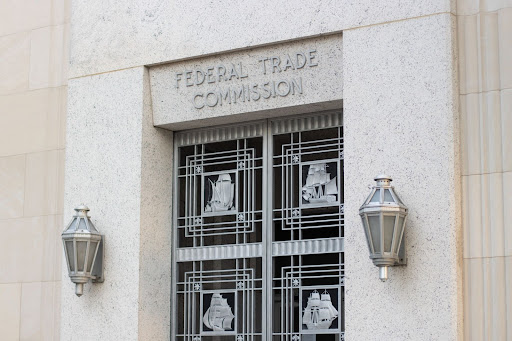In today’s digital era, the exchange of information has grown significantly, with companies frequently gathering and disseminating personal data, leading to substantial privacy issues.
The Federal Trade Commission (FTC) oversees data-sharing activities and safeguards consumers against unjust and misleading business practices. In this post, we’ll examine the FTC’s function in regulating data sharing and the importance of seeking counsel from a Georgia cybercrime defense lawyer if you are confronted with data-sharing-related charges.
The role of the FTC in regulating data sharing
The FTC is a regulatory agency that protects consumers from what it contends are unfair and deceptive business practices. Recently, the agency has been increasingly focused on regulating data-sharing practices.
The FTC has brought enforcement actions – including a high-profile case against Twitter – to companies that engage in deceptive or unfair data-sharing practices and has imposed significant fines for privacy violations. Below is more information about FTC data sharing.
Key issues in legal data-sharing cases
Data-sharing cases can be intricate and may encompass various crucial aspects. One of the primary factors that make these cases complex is the issue of consent.
Consent
Companies must secure permission from individuals before collecting or disseminating their data. Nonetheless, ascertaining if consent was granted in a specific instance can prove challenging.
Damages
Another important aspect to consider in data-sharing cases is damages. To present a successful legal case regarding data sharing, the affected parties must prove that they experienced some form of detriment due to the data sharing. This can be difficult, as the harm may not be easily quantifiable or tangible.
Why you need a Georgia cybercrime defense attorney
The FTC is a watchdog that safeguards consumers from dishonest and unjust business practices. Lately, the agency has been paying greater attention to regulating data-sharing activities. It has taken legal action against companies involved in misleading or unjust data-sharing methods and has levied substantial penalties for privacy breaches.
Benefits of working with a Georgia cybercrime defense attorney
Collaborating with a Georgia cybercrime defense attorney offers numerous advantages, such as:
Experience
A proficient attorney will possess the expertise required to navigate the intricate nature of data-sharing cases. They can offer you invaluable guidance and support throughout the legal proceedings.
Strategic planning
A seasoned attorney will develop an effective strategy tailored to your case. They will assess the unique circumstances and evidence.
Negotiation skills
An adept attorney will have the skills to engage with prosecutors and other parties involved in your case. Their experience in reaching favorable agreements could lead to reduced charges or even case dismissal.
Emotional support
Facing cybercrime charges can be an emotionally taxing experience. A compassionate attorney will provide legal counsel and emotional support to help you cope with the challenges and stress of the situation.
Access to resources
An experienced cybercrime defense attorney has resources, such as expert witnesses and investigators, to strengthen your case.
Working with a Georgia cybercrime defense attorney can significantly enhance your prospects of successfully navigating data-sharing-related charges and ensuring the best possible outcome for your case.
Tips for choosing a Georgia cybercrime defense attorney
When selecting a Georgia cybercrime defense attorney, there are several crucial factors to take into account, such as the following:
Experience
Seek an attorney with considerable experience representing clients in data-sharing cases. They should have a proven track record of successfully handling cases similar to yours, which can offer you confidence in their abilities.
Knowledge of the law
Opt for an attorney who demonstrates a comprehensive understanding of data security regulations and is well-versed in the intricacies of the relevant laws. They should be capable of providing you with clear, concise, and accurate guidance throughout the legal process.
Compatibility
Choose an attorney with whom you feel comfortable discussing your case and personal information. Establishing a good working relationship with your attorney is essential, as trust and rapport are vital for a successful attorney-client relationship.
Communication and accessibility
Search for an attorney who is responsive and adept at communicating clearly and effectively with clients. Effective communication is essential for understanding your case and ensuring you remain informed at every stage.
Reputation
Consider an attorney with a strong reputation within the legal community, including positive reviews and testimonials from previous clients. This can give you additional confidence in their abilities and indicate high professional competence.
Want to know more about FTC and data sharing? We can help.
Call Griffin Durham Tanner & Clarkson LLC with questions in Atlanta: (404) 891-9150 or Savannah: (912) 867-9140.

